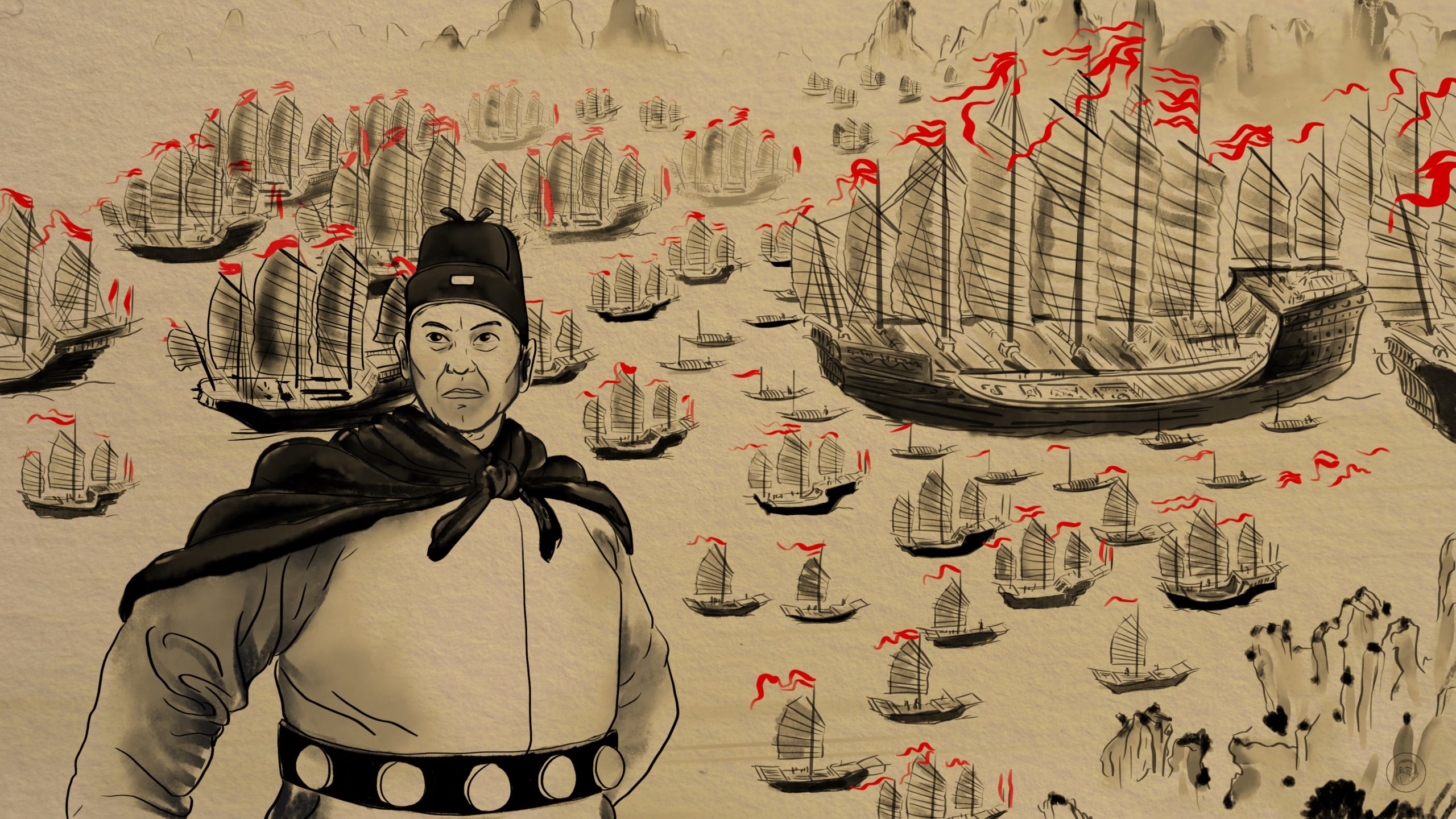
Assalamualaikum
Welcome to another edition of English Corner, my name is Rifki Kusmana. Here is an article about Zheng He and his fantastic journey.
An Indonesian version of this article is available here.
Zheng He, The Chinese Muslim
Zheng He (Chinese: 鄭和), formerly rendered as Cheng Ho in Latin, was a Chinese mariner, explorer, diplomat, fleet admiral, and court eunuch during China’s early Ming dynasty. He is one of the few notable Chinese Muslims in history. As a favorite of the Yongle Emperor, whom Zheng assisted in the overthrow of the Jianwen Emperor, he rose to the top of the imperial hierarchy and served as commander of the southern capital Nanjing.
Zheng’s voyages were long neglected in official Chinese histories but have become well known in China and abroad since the publication of Liang Qichao’s Biography of Our Homeland’s Great Navigator, Zheng He in 1904. Following Zheng He’s arrival, the sultan and the sultana of Malacca visited China at the head of over 540 of their subjects, bearing ample tribute.
Among the Chinese diaspora in Southeast Asia, Zheng He became a figure of folk veneration. The Chinese Indonesian community have established temples dedicated to Zheng He in Jakarta, Cirebon, Surabaya, and Semarang. In 1961, the Indonesian Islamic leader and scholar Hamka credited Zheng He for playing an important role in the development of Islam in Indonesia. The Brunei Times credits Zheng He with building Chinese Muslim communities in Palembang and along the shores of Java, the Malay Peninsula, and the Philippines. The Sam Poo Kong temple in Semarang was built to commemorate Zheng He’s voyage to Java.
For the 600th anniversary of Zheng He’s voyages in 2005, China Central Television produced a special television series, Zheng He Xia Xiyang, starring Gallen Lo as Zheng He. In the People’s Republic of China, 11 July is Maritime Day and is devoted to the memory of Zheng He’s first voyage.
Sam Poo Kong
Sam Poo Kong (Chinese: 三保洞), also known as Gedung Batu Temple, is the oldest Chinese temple in Semarang, Central Java, Indonesia. Originally established by the Chinese Muslim explorer Zheng He, it is now shared by Indonesians of multiple religious denominations, including Muslims and Buddhists, and ethnicities, including Chinese and Javanese.
The foundations of Sam Poo Kong were set when Zheng He arrived in the western part of what is now Semarang via the Garang River; the year is disputed, with suggestions ranging from 1400 to 1416.The Sam Poo Kong complex is located in the Simongan area, southwest of Semarang City. The sign that shows it as a former petilasan with Islamic characteristics was found with the inscription reading “Let’s have a moment of silence by listening to the reading of the Qur’an”.
This temple is called Gedung Batu because its shape is a large stone cave located on a rock hill. To commemorate Zheng He, Indonesians of Chinese descent built a temple. Now this place is used as a place of memorial and worship or prayer and a place for pilgrimage. For this purpose, inside the stone cave was placed an altar and statues of Sam Po Tay Djien. Although Admiral Zheng He was a Muslim, the people considered him a god. This is understandable considering that Confucianism or Taoism considers the dead to be able to help them.
And that’s it for today’s English Corner, I hope you have enjoyed this article and I hope to see you again, someday, Thank you for reading.
Editor: Rifki Kusmana
Editor of the MDF English Corner





Komentar